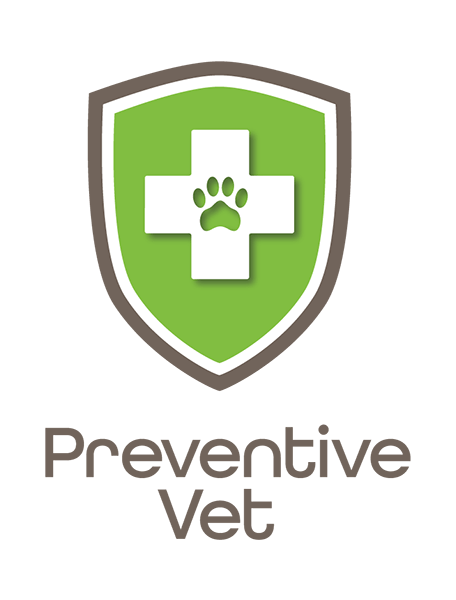- en
Your cat has an upper respiratory infection! Now what?
This Pet InfoRx® will help you know what to do, how to make your cat more comfortable, and how to prevent this from happening in the future.
Quick Links

Like colds in people, most "kitty colds" are mild and will run their course with some rest, good nutrition, and hydration. But there are some important differences between colds in us versus cats. First, your cat can't blow their nose, so you'll need to help keep it clear (gently wiping with warm, moist cotton balls or face cloth throughout the day often does the trick). Second, cats with a URI can also get painful ulcers in their eyes or mouth. If your cat is ever squinting or pawing at their eye, or if their energy level and appetite aren't perking up within 24 hours, it's time for a trip to a vet.
Our mission is to help save dogs' and cats’ lives through our educational content. To support our efforts, this page may contain affiliate links. We earn a commission for qualifying purchases – at no cost to you.
Feline upper respiratory infection (URI) is a complex of viral and bacterial agents that cause the signs of an upper respiratory infection such as sneezing, congestion, coughing, runny eyes, nasal discharge, and fever.
The two viruses responsible for 90% of all upper respiratory infections in cats are herpesvirus and calicivirus. The good news is that most cats recover well in a short period of time.
Typically, the infectious agents (herpes and caliciviruses) for upper respiratory infections (URI), which are highly contagious, are found in young feline animals. Kittens tend to be affected more because of their immature immune systems. Even when kittens grow up, they are still carriers of the herpesvirus. Some can also be carriers of the calicivirus for life. Their symptoms may come out whenever something stresses their immune system because the virus becomes reactivated. While young kittens are most often affected, cats of all ages can develop symptoms.
Cats can be infected with more than one infectious agent at a time. The viruses are spread in eye, nose, and oral secretions and passed via direct cat-to-cat contact. The disease can also be spread by contact with contaminated cages, bowls, clothing, and human caretakers.
The calicivirus can live in the environment for up to a month, whereas the herpesvirus is more fragile and survives only 18 hours outside the host (infected cat). Some cats infected with the calicivirus develop a carrier state where they continue to spread the virus. This state for some cats lasts only a few months. A small percentage of cats, however, are carriers of calicivirus for life. This means these cats are chronically shedding the virus even though they may or may not show signs of infection. The herpesvirus remains in the cat’s body in an inactive form. After a stressful event or illness, cats with herpes are contagious for a couple of weeks to other cats because the virus will be reactivated and shed.
Factors that put cats more at risk of URI include:
The treatment prescribed by your veterinarian will be determined by the severity of the symptoms your cat is having.
Generally, a respiratory infection or cold for a cat is as annoying to them, just as it is to us. Also, just like us, a cold can lead to more serious infections. Your veterinarian may prescribe antivirals, antibiotics (if it appears that a bacterial infection is complicating the viral infection), eye medications due to infection, and/or corneal ulcers, and nasal treatments (to help with nasal congestion and sneezing). And sometimes, pain medications are needed because some cats can get ulcers in their mouth and nose.
If your cat is no longer eating or drinking or their fever is high, your veterinarian may recommend hospitalization.
If there are other cats in your home exposed to your sick cat, especially kittens, monitor them closely for any upper respiratory signs. Contact your veterinarian if any symptoms are noted. Isolate the sick cat from the other cats to minimize the spread of the viruses. Continue the isolation for about 3 weeks after recovery. Be sure to clean and disinfect any shared bowls, litter boxes, toys, etc.

Upper respiratory infections can be miserable for your cat. Here are some things that can help make them more comfortable.
You will know that your cat is improving because there will be a decrease in sneezing, coughing, and nasal discharge. Their eyes, if affected, will stop draining, and the redness and/or swelling will diminish. Their eating and drinking habits, as well as activity levels, will gradually return to normal.
Typically, uncomplicated cases last 7 to 21 days, with the average duration of illness being 7 to 10 days.

Since the average duration of illness is 7 to 10 days, you should notice the improvements, as listed above. If you do not notice any improvements, symptoms seem to worsen, or new symptoms develop (especially a decrease or loss of appetite), you need to contact your veterinarian. They may need to change or add medications, and it may be necessary for your cat to be hospitalized.

The following list is things you can do to help prevent an upper respiratory infection in your cat from happening in the future.
The Pet InfoRx® is made possible, in part, through our partnership with AlignCare®.


© Preventive Vet. All rights reserved. PreventiveVet.com
